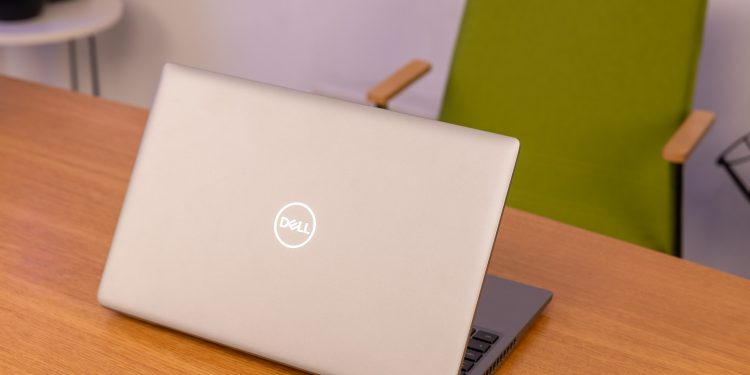In the dynamic and rapidly evolving landscape of technology startups, where innovation fuels progress, one critical aspect often takes a backseat – cybersecurity. Nika Siradze, a startupper from Medialab with three years of experience in cybersecurity and web development, gained foundational knowledge as a former student of the Scientific Cyber Security Association (SCSA) and practical web development experience, is sharing his knowledge on how to strengthen the cybersecurity defense for the startup.
The digital realm, while offering boundless opportunities, also presents formidable challenges, and ensuring the safety of your startup from potential cyber threats is imperative for long-term success. As we navigate the intricate tapestry of securing your venture in this digital age, it becomes evident that the road to success is paved with both opportunities and risks. The stories of startups like Code Spaces and Uber serve as cautionary tales, stark reminders of the real and present danger that cyber attacks pose to burgeoning enterprises.

Code Spaces, once a beacon in the realm of source code hosting and project management, faced a monumental setback in 2014. Hackers, with nefarious intent, breached their AWS account, unleashing a cascade of consequences that extended far beyond mere financial losses. The ultimate demise of the company underscores a profound truth: securing your data is not just about protection; it’s about ensuring the very survival of your venture. In the labyrinth of cybersecurity, understanding the vulnerabilities your startup faces is paramount. It’s a multifaceted threat that doesn’t solely stem from external forces. Often, the weakest links are internal – your team. Thus, establishing a robust culture of cybersecurity awareness from the inception of your startup becomes a foundational necessity. Educate your employees not just on the importance of strong passwords but also on the value of regular system updates and the critical significance of staying vigilant against sophisticated phishing attempts.
Consider the notorious 2016 Uber data breach, where the personal information of 57 million users fell prey to cybercriminals. The subsequent decision to cover up the incident, rather than addressing it transparently, underscored the pivotal importance of accountability in the face of a security breach. Safeguarding user data isn’t just a legal obligation; it’s a matter of trust, an essential currency for sustaining a startup’s reputation in the eyes of its user base.
Let’s now delve into actionable measures that you can implement to strengthen the cybersecurity defenses of your startup:
Strong and Unique Passwords. Make robust, unique passwords a non-negotiable requirement for all accounts. Complexity is crucial – make them intricate and unpredictable.
Two-Factor Authentication (2FA). Wherever possible, enable 2FA. This adds an additional layer of security that can deter potential hackers.
Regular Updates. Keep your software and systems up to date. Ignoring updates leaves vulnerabilities exposed, extending an invitation to trouble.
Employee Training. Foster a cybersecurity-savvy team by imparting knowledge on best practices. Teach them to identify phishing attempts and underscore the importance of data protection.
Regular Backups. Consistently back up your data and create a comprehensive disaster recovery plan. A sound backup strategy can be a beacon of hope in the face of unforeseen disasters.
Security Audits and Penetration Testing. Stay one step ahead by proactively identifying and rectifying vulnerabilities through regular security audits and penetration testing.
In most cases it’s better to choose the laptops from vendors with rigorous supply chain controls to reduce the risk of product tampering. For example, the Dell Latitude 5540 laptop has proven to be a partner, throughout my work routine performing exceptionally well in office and development assignments. This makes it a wise choice, for any company seeking to boost productivity and security features.
Emphasizing the critical importance of cybersecurity is not merely a suggestion; it is an essential element intricately woven into the fabric of your startup’s foundation. The significance of investing in cybersecurity from the inception of your venture transcends the immediate need for protecting goals and reputation. It is, fundamentally, about fortifying the very future of your enterprise in an intricately interconnected and inherently vulnerable digital landscape. As you chart the course for your startup’s journey into the realms of technological innovation, it’s crucial to recognize that a secure startup is not just one that shields itself against external threats; it is a resilient and ultimately successful entity. The intricacies of modern business operations, reliant on digital infrastructure, underscore the indispensable role of cybersecurity in fostering trust, safeguarding sensitive information, and ensuring the uninterrupted evolution of your startup.
In this ever-evolving technological landscape, where innovation is the heartbeat of progress, the proactive integration of robust cybersecurity measures becomes a foundational principle. It is a strategic investment that pays dividends not only in immediate protection but in the long-term viability and prosperity of your startup. As you navigate the intricate dance between groundbreaking innovation and the safeguarding of your digital assets, bear in mind that a secure startup is not just a defensive posture; it is a strategic advantage. It fosters an environment where creativity flourishes, data remains protected, and your venture can thrive amidst the challenges posed by an interconnected digital ecosystem.
So, in the unfolding chapters of your startup’s narrative, let the commitment to cybersecurity be an enduring theme. It’s not merely a shield; it’s a dynamic force that propels your venture forward, ensuring its resilience, success, and continued relevance in the ever-evolving landscape of technological entrepreneurship.

Ultimate security to work from anywhere
- The industry’s most secure commercial PCs*, offering Dell Safe ID, Dell SafeBIOS, fingerprint readers, TPM chip and lock slot options are tested and pass MIL-STD 810H tests
- Intelligent privacy features from Dell Optimizer help keep sensitive data private
- Onlooker detection notifies you when someone is peering at your screen and will texturize your screen
- Look Away Detect knows when your focus is elsewhere and dims to further protect privacy and save battery life
- ExpressSign-in detects your presence and wakes up your system and locks your PC when you walk away
- SafeSupply Chain solutions provide layers of supply chain security and integrity controls
- Optional tamper-evident seals to protect PCs during transit and a NIST-compliant hard drive wipe helps businesses ensure their device has a clean slate before adding the company image
*Based on Dell internal analysis, September 2022.














